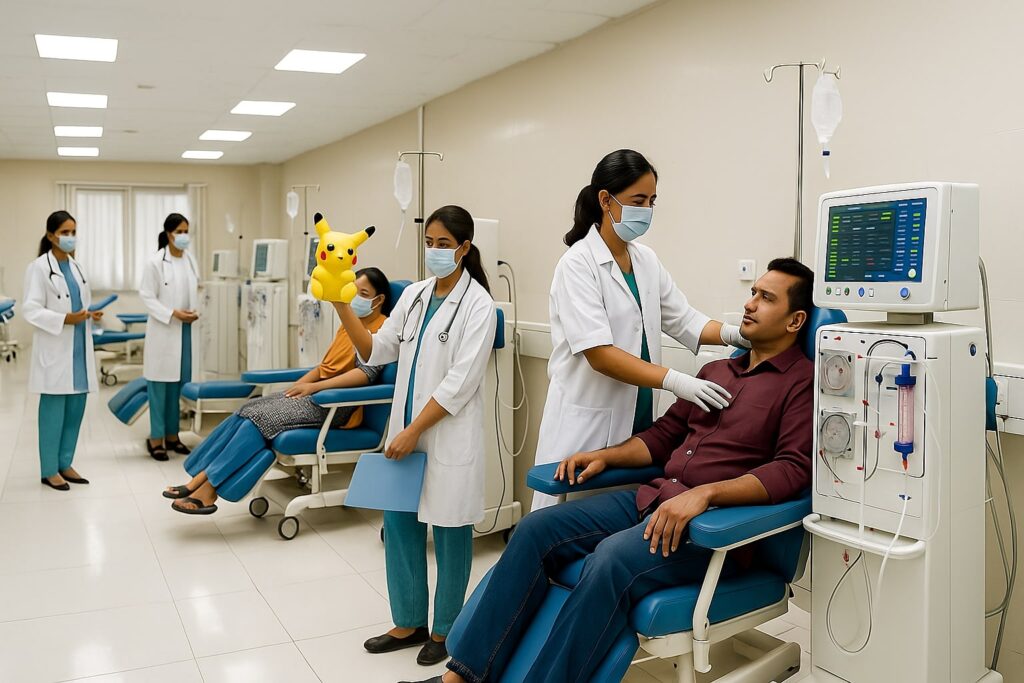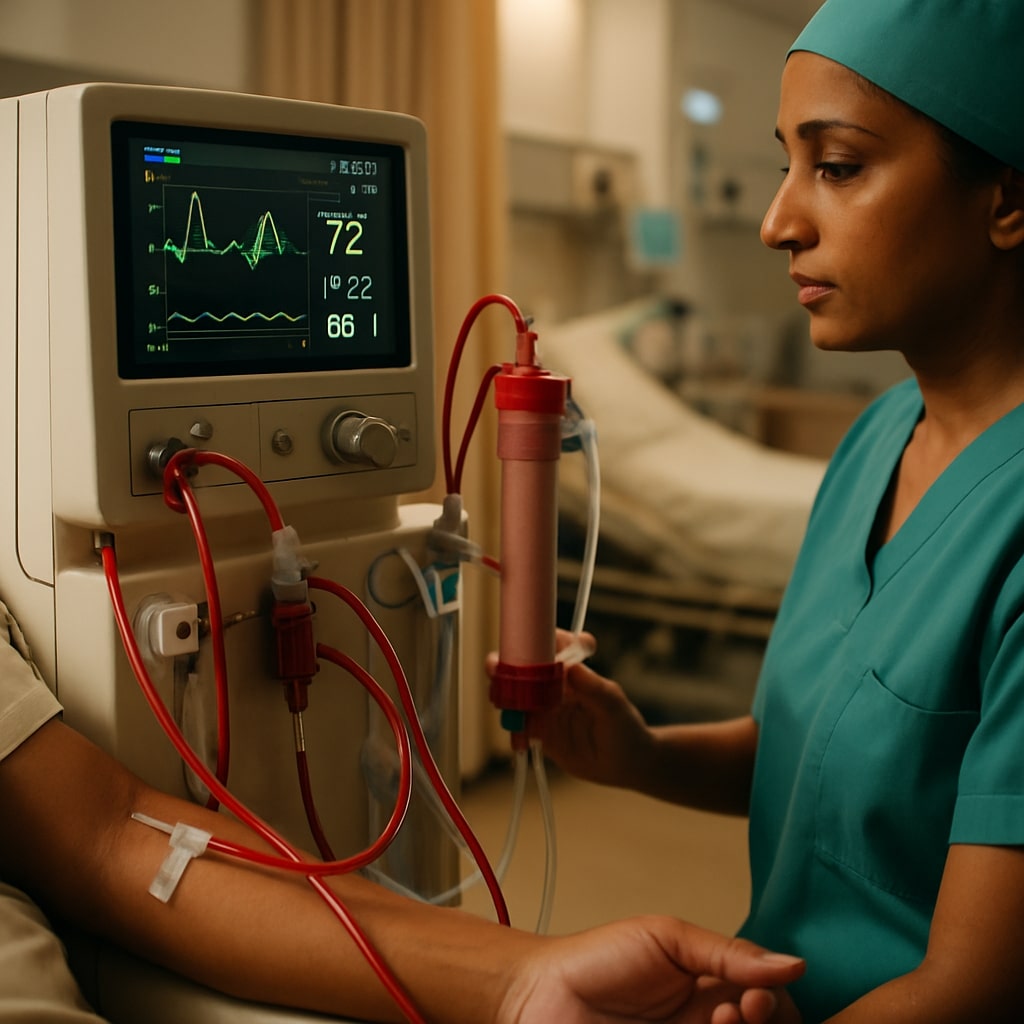
Understanding Dialysis: Hemodialysis vs. Peritoneal Dialysis – Which One Is Right for You?
It’s normal to feel sad after hearing that you or someone you care about needs to start dialysis. You might want to learn about the many kinds of dialysis and which one would be best for your health and lifestyle. We think that the first big step towards feeling in charge of your renal health journey is to understand your options. Lets discuss the types of dialysis and find which one is better for you.
Why Dialysis is Important
Dialysis can save your life when your kidneys can’t accomplish what they need to do. It helps your body get rid of toxins, excess fluids, and waste that it can’t eliminate on its own. There are a few different ways to conduct this crucial work. Did you understand that?
There are two primary types of dialysis: haemodialysis and peritoneal dialysis. Let’s look at them. This will help you understand what each one implies for you.
What Does It Mean to Have Haemodialysis?
You might have heard of haemodialysis as well; it’s the most prevalent method. The dialyser is a machine that gently cleans your blood outside of your body. It’s like having a heart that isn’t real.
You can usually go to a dialysis clinic like ours at Arsh Hospital. Our nephrologists and professional team will take great care of you while you’re there.
There are meetings three times a week that last three to five hours each. The body’s system gets rid of superfluous fluids and waste, and then it delivers the clean blood back to the body. This method works really well, especially if you need to keep an eye on how stable your body’s fluids are.
What Does It Mean to Have Dialysis in the Area Between the Peritoneum?
Many people like peritoneal dialysis because it allows them greater independence. Instead of a tool, this method employs the peritoneal membrane, which is the lining of your stomach, as a natural means to wash away.
A catheter is a thin tube that progressively transfers a certain liquid into your stomach. This liquid has debris and surplus liquid in it, which is then drained off. You may also frequently do this treatment at home!

Two Primary Kinds of Peritoneal Dialysis:
- Continuous Ambulatory Peritoneal Dialysis (CAPD):
People do this by hand all day, and they do it more than once a day. This lets you have greater say over your daily life. - Automated Peritoneal Dialysis (APD):
A little machine does the work while you sleep.
How Do You Pick the Right Kind of Dialysis for You?
You have to decide for yourself whether you want peritoneal dialysis or haemodynamic dialysis. Your health, your everyday habits, and what feels right for you are what matters.
Here are a Few Things to Consider:
- Independence:
Peritoneal dialysis may be the best choice for people who want a lot of independence and would rather manage their treatment at home. - Supervision:
You have to travel to a centre numerous times for haemodialysis, but a professional is always there to watch over you. - Your Health:
Your doctor can choose one way over the other based on your health or other circumstances that make things harder. - Your Lifestyle:
You have fewer sessions of haemodialysis each week, but they last longer. You have to take care of peritoneal dialysis every day, but it filters blood all the time.
Keep in mind that your nephrologist at Arsh Hospital will try to learn about your unique circumstances and work with you to find the best and safest solution.
Where is the Best Spot for You to Get Dialysis?
What makes us different?
We care about you as a whole person at Arsh Hospital, not just your demand for current technology. Our friendly team of kidney professionals will be there for you every step of the way — whether you choose to have haemodialysis at our contemporary, comfortable centre or start peritoneal dialysis at home with our complete training and support.
We have the newest tools and safety measures at our Best Faridabad Dialysis Facility in Sector 78 to make sure that every treatment is as safe and comfortable as possible.
We realise it can be scary to start dialysis, but we’re here to help you get through it and offer you the skills you need to get healthier and fitter.